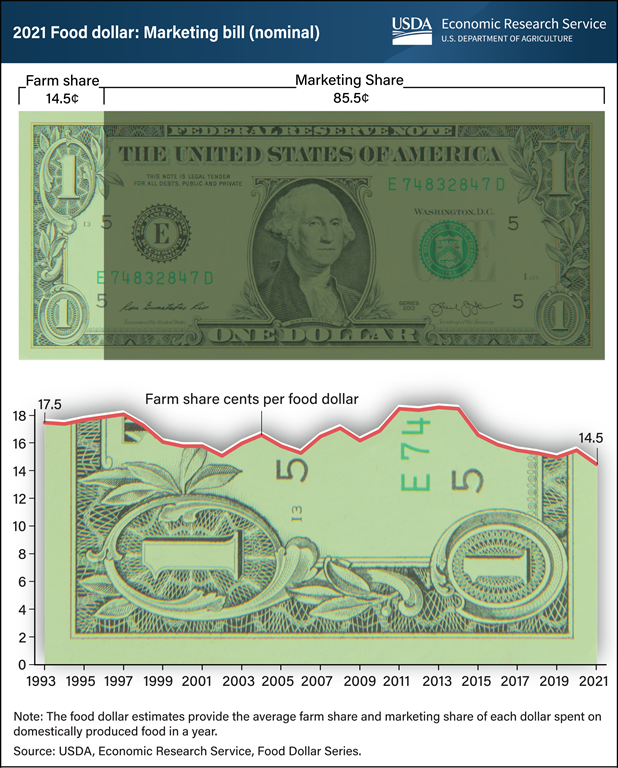U.S. farm establishments received 14.5 cents per dollar spent on domestically produced food in 2021—a decrease of 1.0 cent from a revised 15.5 cents in 2020—to the lowest recorded farm share value in nearly three decades. The remaining portion of the food dollar—known as the marketing share—covers the costs of getting domestically produced food from farms to points of purchase, including costs related to packaging, transporting, processing, and selling to consumers.
One contributor to the 2021 decline in farm share was a shift to food-away-from-home (FAFH) spending. Farm establishments typically receive a smaller share of FAFH spending because of the large amount of value added by FAFH outlets such as restaurants. As a result, the farm share generally decreases when FAFH spending increases faster year-over-year than food-at-home spending.
FAFH spending increased markedly in 2021 after a sharp decrease early in the Coronavirus (COVID-19) pandemic. Accordingly, the farm share returned to its pre-pandemic downward trend in 2021 after an increase in 2020. The USDA, Economic Research Service (ERS) uses input-output analysis to calculate the farm and marketing shares from a typical food dollar. The data for this chart can be found in ERS’s Food Dollar Series data product, updated November 17, 2022.














